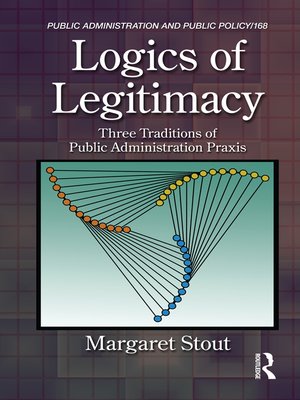Logics of Legitimacy
ebook ∣ Three Traditions of Public Administration Praxis · Public Administration and Public Policy
By Margaret Stout

Sign up to save your library
With an OverDrive account, you can save your favorite libraries for at-a-glance information about availability. Find out more about OverDrive accounts.
Find this title in Libby, the library reading app by OverDrive.



Search for a digital library with this title
Title found at these libraries:
| Library Name | Distance |
|---|---|
| Loading... |
The discipline of public administration draws predominantly from political and organizational theory, but also from other social and behavioral sciences, philosophy, and even theology. This diversity results in conflicting prescriptions for the "proper" administrative role. So, how are those new to public administration to know which ideas are "legitimate"?
Rather than accepting conventional arguments for administrative legitimacy through delegated constitutional authority or expertise, Logics of Legitimacy: Three Traditions of Public Administration Praxis does not assume that any one approach to professionalism is accepted by all scholars, practitioners, citizens, or elected representatives. Instead, it offers a framework for public administration theory and practice that fully includes the citizen as a political actor alongside elected representatives and administrators. This framework:
The framework for public administration theory and practice is presented in three traditions of main prescriptions for practice: Constitutional (the bureaucrat), Discretionary (the entrepreneur), and Collaborative (the steward). This book is appropriate for use in graduate-level courses that explore the philosophical, historical, and intellectual foundations of public administration. Upon qualified course adoption, instructors will gain access to a course outline and corresponding lecture slides.







